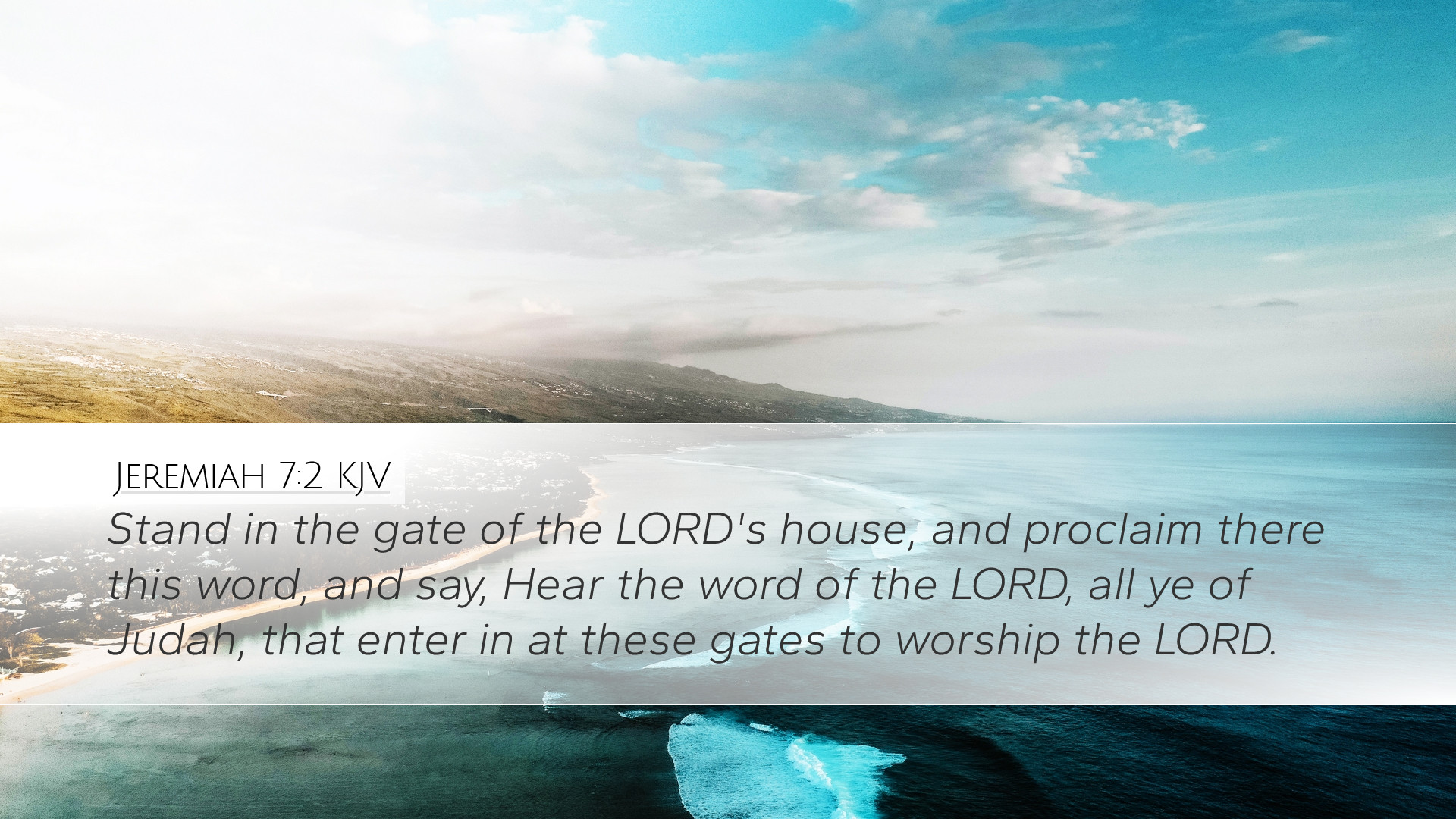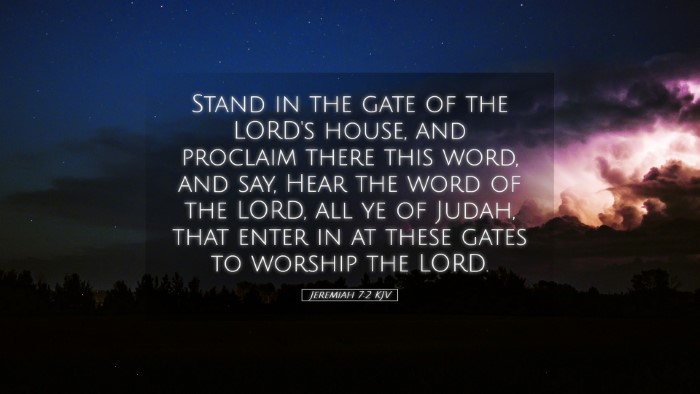Commentary on Jeremiah 7:2
Bible Verse: Jeremiah 7:2 - "Stand in the gate of the LORD’s house, and proclaim there this word, and say, Hear the word of the LORD, all ye of Judah, that enter in at these gates to worship the LORD."
Introduction
Jeremiah 7:2 serves as a focal point in Jeremiah's prophetic ministry. This verse is pivotal not just in its immediate context, but in the broader narrative of the Old Testament, addressing themes of worship, obedience, and the true nature of faithfulness to God.
Analysis of Key Themes
- Divine Command to Proclamation: God instructs Jeremiah to stand at the gates of His house, which signifies a position of authority and visibility. The act of proclaiming His word highlights the prophetic duty to confront the people.
- The Importance of Location: The gates represent a threshold of transition for the people—entering the sacred space of worship. Being positioned there signifies reaching those who are about to engage in religious activities.
- Call to Attention: The phrase "Hear the word of the LORD" is both a command and an invitation. It emphasizes the necessity of listening to God's word, which remains central in both Old and New Testament faith.
Matthew Henry's Insights
Matthew Henry explores the significance of the prophetic call. He notes that this call to stand at the gate indicates the seriousness of the message Jeremiah is to deliver. The people of Judah are entering into worship, yet their hearts are often far from God. Henry suggests that the very act of approaching the temple should provoke self-examination among the worshipers.
Henry insists that true worship is not merely external but requires an inward sincerity. He warns against the dangers of hypocrisy, where ritualistic worship can often mask a lack of true devotion.
Albert Barnes' Reflections
Albert Barnes comments on the setting of the verse, emphasizing that the gates of the Lord's house symbolize the point of entry into the community of faith. He argues that Jeremiah’s call to "hear" indicates God's desire for His people to engage with the teachings of the Scriptures actively.
Barnes highlights the contrast between how the people were approaching worship versus the heart posture God desires. He suggests that many enter the temple with complacency, thinking mere attendance suffices; however, God desires more than participation—He seeks a heart committed to His ways.
Adam Clarke's Commentary
Adam Clarke offers a detailed contextual examination, stating that Jeremiah’s message at this location represents God's urgent appeal for repentance. Clarke emphasizes the cultural significance of the gates, where the community gathers, making it the perfect place for urgent prophetic messages.
Clarke points out that the command to hear also implies that the people need to respond and act accordingly. He laments the historical neglect of God’s commands among His chosen people, suggesting that disobedience to God's word had dire consequences for Judah.
Historical Context
This proclamation takes place during a time of significant turmoil for Judah. The temple, regarded as a sacred institution, had been perverted by the people's sins. The notion of entering the temple gates while harboring disobedience illustrates a deeper spiritual crisis that Jeremiah seeks to address.
Conclusions and Applications
Jeremiah 7:2 serves as a stern reminder for contemporary believers and leaders alike of the importance of sincerity in worship. Students of the scriptures are urged to examine their own motives for worship, making sure they align with God’s expectations. The emphasis on hearing God's word is especially vital in today’s society, where distractions often draw attention away from collective and personal worship.
As pastors and theologians engage with this text, it encourages them to challenge their congregations to move beyond ritualistic observance to a genuine heart posture that seeks to embody the scriptures in daily living. The prophetic call remains a necessary catalyst for renewal within the church, reminding all to heed the divine voice calling towards true worship.


